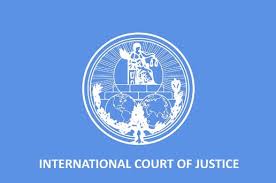Subjects of International Law: Meaning, Theories, Rights and Duties
Subjects of International Law
1. Meaning of Subjects of International Law
Subjects of International Law are entities that possess international legal personality—meaning they have rights, duties, and the capacity to act under international law.
They can sue and be sued in international courts, enter into treaties, and bear international responsibilities.
Traditionally, only states were considered subjects, but now other entities such as international organizations, individuals, and even non-state actors can also be subjects.
2. Theories of Subjects of International Law
A. State-Centrism Theory (Traditional View)
Only states are true subjects of international law.
Other entities, like individuals or organizations, have no independent international legal personality but act through states.
Rooted in classical international law when states were the sole actors.
B. Realist or Positivist Theory
Subjects of international law are those entities recognized by other states and international law.
Legal personality depends on recognition and capacity to perform international acts.
This theory accepts states, international organizations, and under certain conditions, individuals and corporations as subjects.
C. Fictional or Juridical Person Theory
Subjects of international law are legal fictions created by states.
International personality is granted by states and international treaties.
This theory justifies entities like international organizations as subjects.
D. Dynamic or Functional Theory
Focuses on functions performed by entities rather than their form.
Subjects are those who have rights and obligations under international law and can perform international acts.
This theory supports extending international legal personality to individuals, international organizations, and other entities like liberation movements.
3. Subjects of International Law Today
States: The primary and most important subjects with full international legal personality.
International Organizations: E.g., United Nations, WTO, NATO, with specific legal personality limited to their functions.
Individuals: Hold rights and duties under international law (human rights, criminal responsibility).
Non-State Entities: Such as liberation movements, corporations (in some contexts), and NGOs (to a limited extent).
4. Rights and Duties of Subjects of International Law
A. Rights
States:
Sovereignty and territorial integrity.
Right to enter into treaties.
Diplomatic immunity.
Protection of nationals abroad.
Use of force under self-defense.
International Organizations:
Operate within competence granted by treaties.
Immunities and privileges.
Individuals:
Fundamental human rights (life, freedom, equality).
Protection under international criminal law.
Right to nationality and diplomatic protection.
Others (e.g., corporations):
Investment protection.
Capacity to bring arbitration claims in some cases.
B. Duties
States:
Respect sovereignty of other states.
Abide by treaties.
Avoid aggression.
Protect human rights.
International Organizations:
Act within their mandate.
Respect principles of international law.
Individuals:
Obey laws.
Respect other peoples' rights.
Bear responsibility for crimes under international law.
Others:
Corporations must respect labor and environmental standards under international agreements.
Summary Table
| Subject | Rights | Duties |
|---|---|---|
| States | Sovereignty, treaty-making, protection | Respect sovereignty, fulfill treaty obligations |
| International Organizations | Operate under mandates, privileges | Act within competence |
| Individuals | Human rights, diplomatic protection | Abide by law, responsibility for crimes |
| Others (Corporations, NGOs) | Limited rights like investment claims | Respect international norms |












comments